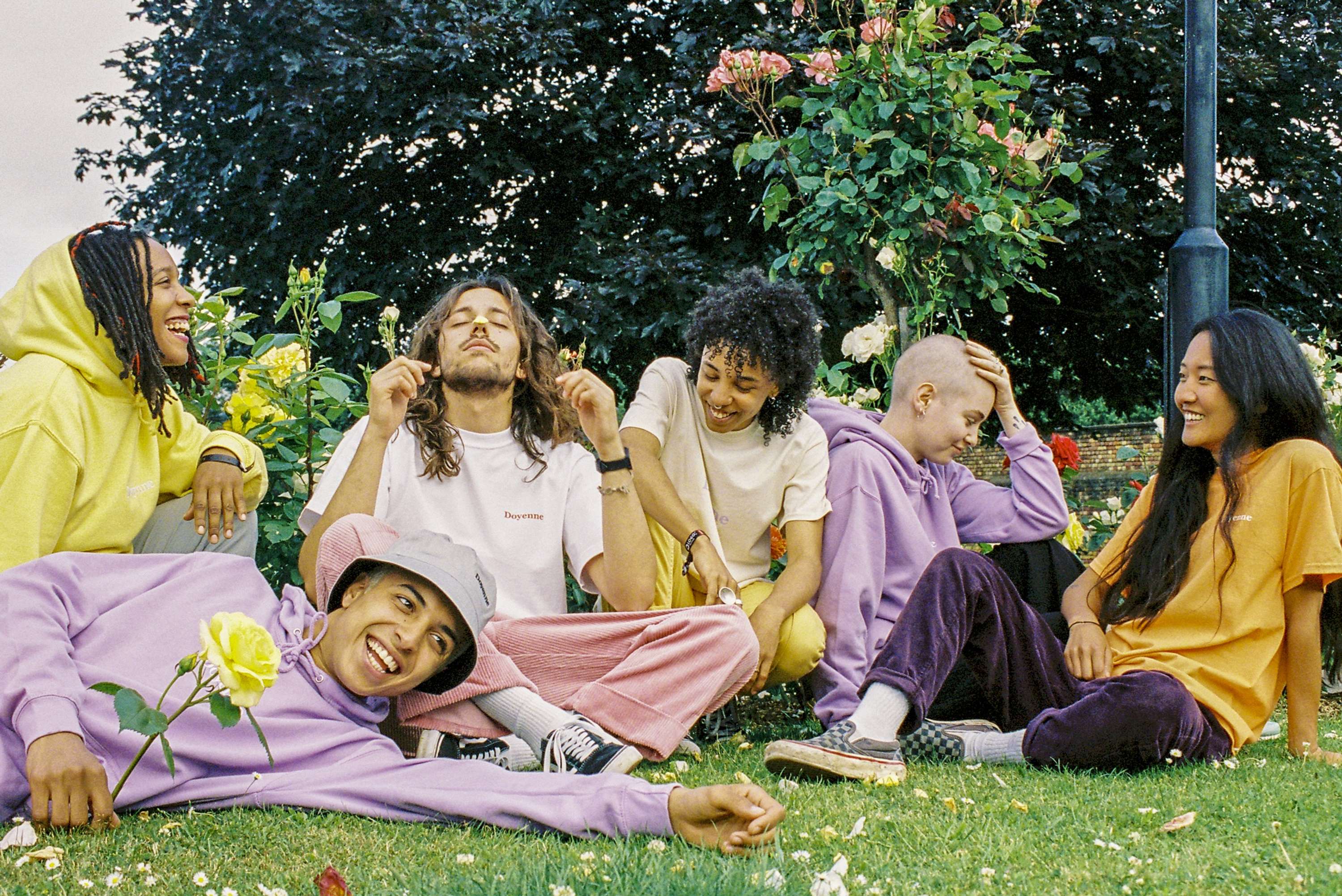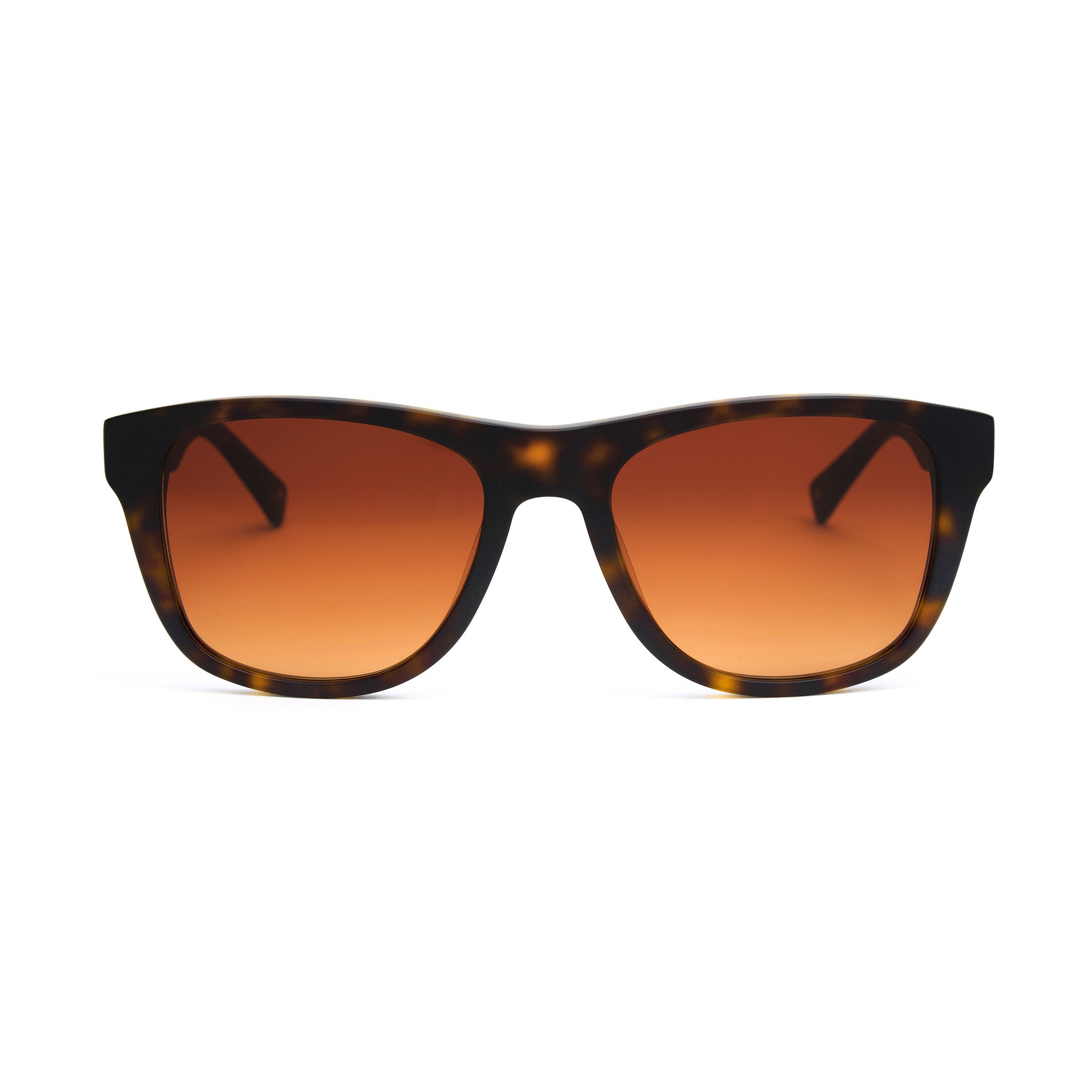Journal
Meet Rachel E Millar ~ Lettering Artist & Signwriter
There’s Atari old-school and then there’s hand-painted-sign old-school ~ meet Glasgow based Signwriter, Rachel E Millar.
Brewgooder - the craft beer that gives back
Pour an ice cold glass of good vibes and let us introduce you to Brewgooder - the craft beer that’s making a huge difference. What if you knew that with every beer you bought, you helped to provide clean water to thousands of people all over the world who need it most? When he was 22, Alan Mahon worked on an international development project in Nepal and fell ill after picking up a parasite from contaminated water. It made him realise how lucky he was to live in the UK and have access to the basic stuff, where someone born in the same moment as him, who lived somewhere without clean water, would have the odds stacked against them. It was this thought (and a love for craft beer) that inspired the beginning of Brewgooder. “Being young and naïve I felt there could be a way to connect the thing I liked drinking and talking about with my friends, with an issue that I’d like to dedicate my life to trying to help solve. In my head that was a beer that helped fund access to clean water for people and that didn’t sound stupid in my head at all, so I went for it.” So in 2016, Alan joined forces with his friend Josh Littlejohn (who started Social Bite) to launch Brewgooder on World Water Day with a simple aim - to provide clean water to 1 million people by donating 100% of profits to clean water charities. With the help of BrewDog - who brew their beer at zero margin - they created something that helps people to make a difference as they catch up with their friends. Although, the ‘brewing’ part didn’t come as easy as Alan first thought… “The first batch I ever brewed by hand back in August 2015 was an absolute disaster. The night before I was meant to sell it at an event in Edinburgh 300 of the 1000 or so bottles I brewed began exploding in various locations around my flat. Me and my flatmate at the time disposed off them in any way we could. We took a fair few to the big black, hatch-operated bins that are everywhere in Edinburgh city centre and it was like a scene from the movie ‘Fury’. It was ‘fire in the hole’ as we disposed one by one of grenades of deadly malt, hops, water, yeast and glass. It was terrifying and utterly demoralising at the time, but I can look back and laugh and thank god I didn’t try and go it alone in the brewing game because that could have gotten very messy.” Since getting the beer side of things perfected, Brewgooder have helped to fund 72 projects (which range from well repairs to new installations) that have given 53,381 people in Malawi access to clean water. In their first project alone, they installed two solar-powered wells in a village called Chiluzi in the Dedza region of Malawi that helped to support around 3,000 people (including a school of 1,500) with clean water. This also helped to support an antenatal clinic, two school feeding programs and a vegetable garden - all thanks to the hard work of Alan and the team, and people like us who decided to get a round of Brewgooder at the pub. Recently, they launched their Honesty Box - where you can pay anything from 1p to however much you think a case of craft beer that changes people’s lives is worth. They also have their Jingle Wells appeal - a festive campaign to fix 12 broken wells in Malawi, bringing clean water access to over 3,750 people in the New Year. All of these projects help to introduce people to what they could do, and for Brewgooder, they want to make sure that everyone knows exactly where their beer money is going: “More and more, we’re working with super-transparent NGOs and charities to deliver our projects. Every level of detail can be accurately measured and communicated. From the GPS coordinates of the village, to the number of people we help, all the way through to how long each well would take to fill a 20-litre bucket. This is next level and helps make our impact real for the people who choose to drink our beer” For us, Brewgooder is a great example of how you can make a difference just by doing what you usually do anyway. We spoke to Alan about the impact of social businesses like Brewgooder and there are loads of options out there to make choices that have a positive impact. Especially as it comes up to Christmas, we can all shop local or with brands that do good and really make a positive impact (even when we’re out for a few with our friends while they’re home over the festive season). For Brewgooder, they’re getting closer and closer to their goal of providing clean water to 1 million people, and it all starts with a beer. Follow Brewgooder on Instagram at @brewgooder
Empowering Youth Through Skating
“I support Skateistan because I believe skateboarding can be a catalyst for positive change, especially among children." Tony Hawk, pro skateboarder Skateistan is an award-winning international non-profit organisation that provides programs combining skateboarding and education to children and youth aged 5-17 in Afghanistan, Cambodia and South Africa. Through the hook of skateboarding they engage children, especially girls and children from low income backgrounds, and provide them with access to safe spaces and education. Skateistan's innovative programs teach children valuable life skills that go beyond the skatepark and the classroom. Their core programs aim to keep children and youth involved in the Skateistan community for the long term. As students get older, they become role models to the younger children and the wider community. Join us in Donating Today The animation below, created by Berlin-based illustrator Maria Giemza and animator Dominik Grejc, tells the story of an Afghan girl empowered through skateboarding and education. Based on the real life of a Skateistan student in Kabul, Afghanistan, the animation showcases the impact Skateistan's programs have on the lives of children and how the charity works to empower children and youth around the world. Skateistan Students Over 1,800 children and youth are part of the programs worldwide. Skateistan believes that positive social change happens when children are educated on how to take care of themselves and their community. Skateistan addresses gender inequality by including as many girls as possible in their programs. Over 50% of registered students are female, and Afghanistan has the highest percentage of female skateboarders in the world. Skateistan offer girls-only sessions at all of their Skate Schools worldwide. Educational and recreational services for youth are often compromised in places of long-term conflict and concentrated poverty. Yet, when millions of youth miss out on experiences of playing and learning, they lose opportunities to develop essential life skills, to imagine a new world for themselves, to evolve into leaders, and to develop effective solutions for their communities. Skateboarding is accessible to children with physical and cognitive disabilities as it can be practiced in some form by virtually anyone. The ability to take part in sport and creative activities builds students' confidence, self-esteem, and provides a valuable platform for self-expression. For children of migration backgrounds there are many obstacles to accessing education. Skateistan works with internally displaced youth, nomadic communities, economic migrants and refugees. Q&A How do youth benefit from skateboarding?Skateistan’s model is founded on the belief that skateboarding is a great equaliser. With a safe space and staff trained in delivering quality programs, we develop community leaders and skateboarders who know how to safely fail and persevere through adversity. This new generation of role models is equipped to tackle complex problems in their own lives as well as in their local and global communities.What are the benefits of children being part of Skateistan’s programs?At Skateistan, children find a fun, safe community where they can play and learn, free from discrimination and violence. Within a diverse peer group they come to understand themselves as equal with others, while learning new skills and building friendships. As members of a thriving learning community, youth develop key life skills and increase their confidence. Youth set goals, stay in school, and become involved in civic engagement activities. Many become role models for their peers in the skatepark and classes. At 18, youth graduate from Skateistan and from high school with an expanded notion of community, and the tools to seek out further education and employment. Some become Skateistan volunteers and staff, and all join a global community of active, engaged citizens - promoting such values as equality, education, and inclusion.Was the community involved during construction of the skate schools?Yes. Involving the local community was important for consent; we put in the effort to operate in a culturally-sensitive and appropriate manner. It is common for local government, youth, parents, and community groups to work together to build safe, supervised, and youth-friendly facilities. Watch how the Skate School was made in Johannesburg.Can girls participate?More than 50% of students are girls! Getting girls on a skateboard has been a priority since Skateistan's beginning. However, we acknowledge that there are many obstacles to teaching girls — and that is why we hold the support of the parents, local community and government in such high regard. Half of our students are female, giving Afghanistan the highest rate of female participation in skateboarding in the world. They are taught on separate days at the park, by an all-female staff. In South Africa and Cambodia, Skateistan hopes to address the gender gap through their girls-only sessions. We run 14 of these girls-only sessions each week around the world.Can people with disabilities participate?Yes. A focus of ours is working with youth living with a disability. Students can take part in our Skate and Create program and we run Outreach sessions with partner organisations. Skateboarding is accessible to children with physical disabilities, as it can be practiced in some form by virtually anyone. The ability to take part in sport and creative activities builds students confidence, self-esteem, and provides a valuable platform for self-expression.Are the students safe?The Skate Schools are supervised and secure private facilities that are built and run with community consent. We are in regular communication with local safety organizations, as well as with government and local community leaders, so that we receive regular security updates and conduct activities safely. When skating all students must wear a helmet and safety pads.Are the programs free for children?Yes, this is essential, as most participants of Skateistan cannot afford to pay for lessons. There are absolutely no costs incurred by students for any activities, for example, all materials needed in the skatepark or the classroom are provided to students by Skateistan. Additionally, we arrange transport for girls in Afghanistan to make it easier and safer for them to attend. Images & words courtesy of @skateistan. Learn more at skateistan.org.
The Tempest Two
Two men. One boat. The Atlantic Ocean. Follow James & Tom on one of the toughest challenges on Earth.
The Mighty Tuks
3,000km through India in a three-wheeled Rickshaw named Delilah. A guest blog from Scott Peters.
Travel The World As You Earn
Pieter Levels utilises technology to design a lifestyle that allows him to live and work wherever he wants.
Wild Tracks
Edinburgh to Cape Town on £300 motorbikes, with a few bumps along the way. A guest travel blog by Chris Sleigh.









